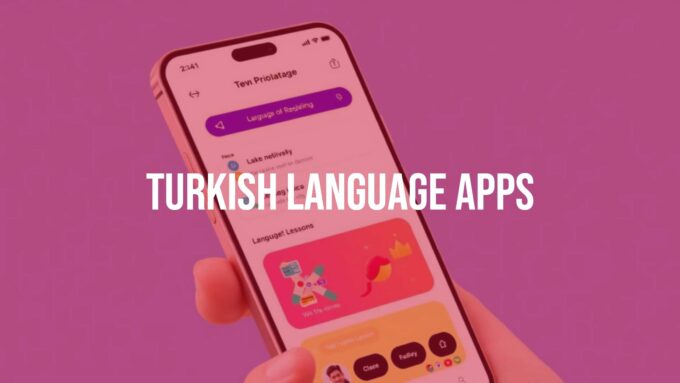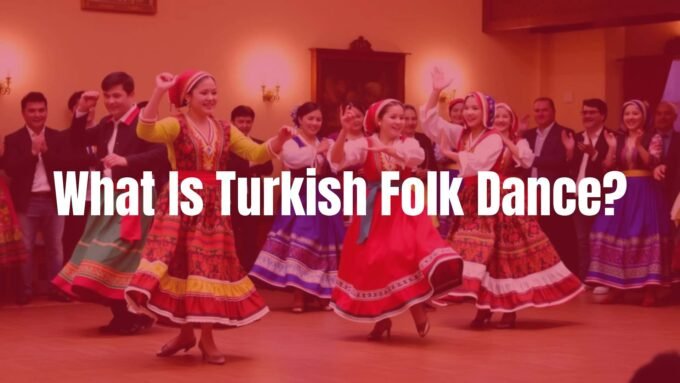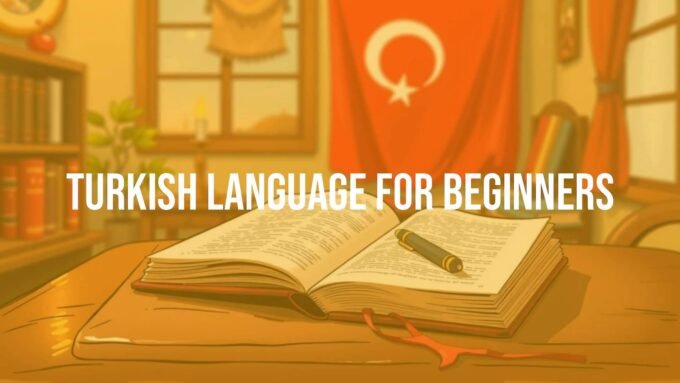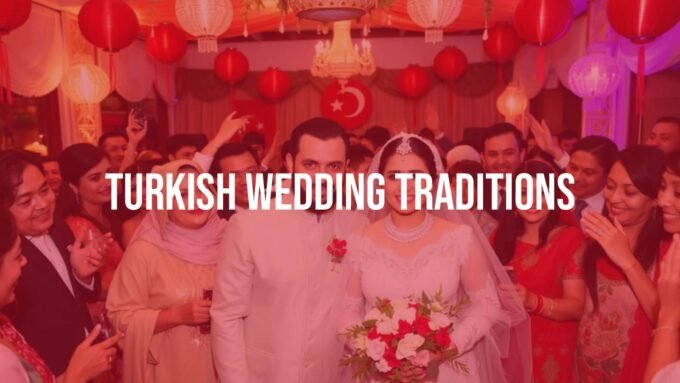Common Turkish expressions play an important part in daily conversations in Turkey. They show a lot about the culture, the warmth of the people, and the value placed on respect. These are not just words or standard phrases; they help people feel connected and communicate clearly and politely every day. Whether you are planning to visit Turkey, want to chat with Turkish friends, or you’re just interested in the language, learning these expressions will help you have more natural and friendly interactions. They are like a handshake, a smile, or a respectful gesture that helps conversations go smoothly.
From the busy streets of Istanbul to the quiet views in Cappadocia, these everyday phrases make getting around much easier. While many Turkish people, especially in tourist areas, understand some English, using Turkish phrases is always appreciated. This article will explain some common Turkish expressions, what they mean, when to use them, and why they matter in daily life. By knowing these, you’ll be ready to start conversations in Turkey confidently.

What Are Common Turkish Expressions?
Common Turkish expressions are phrases used all the time for regular communication. They include greetings, polite sayings, and casual questions-things Turkish people say without even thinking. Learning them helps anyone interested in blending in more easily and connecting with local people. These expressions are about more than just talking-they help make friends, show kindness, and become part of daily Turkish life.
If you are traveling, these phrases help you do more than just basic tasks-they break the ice and make your trip more enjoyable. For example, when ordering food, asking for help, or talking in a shop, using these expressions helps you feel more comfortable and makes locals happy to help you.
Important Features of Turkish Expressions
- Politeness and Respect: Turkish phrases often show care for others’ feelings. For example, saying “Kolay Gelsin” (“Hope your work goes easy”) to someone who is working shows respect and friendliness from the very start of the conversation.
- Easy Pronunciation: Turkish is mostly spoken the way it’s written. Most vowel and consonant sounds always stay the same, making these expressions easier to remember.
- Starting and Ending Conversations: Many Turkish expressions help start or finish a conversation politely, following the culture’s focus on respect and order.

When Do People Use Turkish Phrases Most?
People use these phrases all day, in almost every kind of conversation. Greetings and farewells-like “Merhaba” (Hello), “Günaydın” (Good morning), and “İyi akşamlar” (Good evening)-are very popular and are more than just polite; they are expected. These help you start and end a chat in a friendly way.
Turkish expressions are also useful in restaurants, on the street, in markets, and in small talk. For example, “Afiyet olsun” (“Enjoy your meal”) is often said at the table. When you need help, “Bana yardım eder misin?” (“Can you help me?”) is useful. These phrases aren’t just words to memorize-they are part of daily life and conversation.
Groups of Everyday Turkish Expressions
Turkish uses many common phrases for different parts of life. Learning them in small groups, or categories, helps you pick them up more quickly. Each group has its own use and purpose.
| Category | Sample Expressions | When to Use |
|---|---|---|
| Greetings | Merhaba (Hello), Günaydın (Good morning), İyi akşamlar (Good evening) | Starting or finishing a conversation |
| Politeness | Lütfen (Please), Teşekkür ederim (Thank you), Sağ ol (Thanks – informal) | Showing respect, being friendly |
| Getting Help | Bana yardım eder misin? (Can you help me?), Affedersin (Excuse me), İmdat! (Help!) | Asking for directions, emergencies |
| Dining/Shopping | Afiyet olsun (Enjoy your meal), Hesap lütfen (Bill, please), Ne kadar? (How much?) | Eating out, buying things |
| Small Talk | Nasılsınız? (How are you?), Nerelisin? (Where are you from?) | Getting to know someone |

Greetings and Salutations
- Merhaba (Hello): Standard greeting for anyone.
- Günaydın (Good morning): Use in the morning.
- İyi akşamlar (Good evening): For the evening.
- İyi günler (Good day): Used when parting or throughout the day.
- Kolay Gelsin (Hope your work is easy): To someone working.
- Hoş geldin (Welcome): Said to someone arriving.
- Hoş bulduk (Glad to be here): The reply to “Hoş geldin.”
For Small Talk
- Nasılsın? or Nasılsınız? (How are you?)
- İyiyim, sen nasılsın? (I am good, how about you?)
- Ne haber? (What’s up?)
- Ailen nasıl? (How is your family?)
- Nerelisin? (Where are you from?)
Question Words
| Turkish | English |
|---|---|
| Kim? | Who? |
| Ne? | What? |
| Nerede? | Where? |
| Ne zaman? | When? |
| Ne kadar? | How much? |
| Neden?/Niye?/Niçin? | Why? |
Politeness and Respect Phrases
- Lütfen (Please)
- Teşekkür ederim (Thank you)
- Sağ ol (Thanks – informal)
- Bey (Mr.) after a man’s first name, Hanım (Ms./Mrs.) after a woman’s first name
- Teyze (Auntie), Amca (Uncle): Used for adults, not just relatives
Getting Help and Emergencies
- Bakar mısın? (Can you look/help?)
- Affedersin (Excuse me)
- Bana yardım eder misin? (Can you help me?)
- İmdat! (Help!) – Only for true emergencies
- Polis nerede? (Where is the police?)
- Konsolosluk nerede? (Where is the Consulate?)
Phrases for Dining and Shopping
- Menüyü alabilir miyim? (Can I have the menu?)
- Lütfen … alabilir miyim? (Can I please have…?)
- Lezzetli (Delicious!)
- Afiyet olsun (Enjoy your meal)
- Hesap lütfen (Bill, please)
- Ne kadar? (How much?)
- Sende … var mı? (Do you have…?)
- Kredi kartı ile ödeyebilir miyim? (Can I pay by credit card?)

Travel and Directions
- Neredeyim? (Where am I?)
- Bana yol tarif eder misiniz? (Can you give me directions?)
- Pardon, ___’ya nasıl gidebilirim? (Excuse me, how do I get to ___?)
- Hangi otobüs buradan geçiyor? (Which bus goes from here?)
- Bilet almak istiyorum (I want to buy a ticket)
- Metro nerede? (Where is the subway/metro?)
- Taksi nereden bulabilirim? (Where can I find a taxi?)
- Tren garına nasıl giderim? (How do I get to the train station?)
Popular Turkish Expressions and Their Meanings
- Hoş geldiniz (Welcome, your arrival is nice): Shown to guests or visitors. You reply: Hoş bulduk (Glad to be here).
- Güle güle (Go with a smile): Used by someone who stays behind when someone else is leaving. The person leaving says Hoşça kal (Stay well).
- Görüşürüz (See you): Used for future meetings.
- Teşekkür ederim (Thank you). Reply: Rica ederim (You’re welcome) or Bir şey değil (It’s nothing).
- Elinize sağlık (Health to your hands): Thanking someone for preparing food or making something.
- Kolay gelsin (Hope the work is easy): Said to someone working.
- Geçmiş olsun (Get well soon): Said when someone is sick or has had a bad experience.
- Yolun açık olsun (May your way be open): For someone going on a trip.
- Gözünüz aydın (Congratulations on a new baby).
Common Idioms and Sayings
- Şeytan tüyü (Devil’s feather): Compliments someone with charm or charisma.
- Taş attı da kolu mu yoruldu? (Did he get tired just throwing a stone?): Used for someone who barely did anything.
- Bir yastıkta kocasınlar (May they grow old with one pillow): Well-wish for newlyweds.
- Etekleri zil çalıyor (The bells on their skirt are ringing): Describes someone who is very excited.
- Armut piş ağzıma düş (Waiting for the pear to fall into their mouth): Describes a person who waits for things to happen without any effort.

For Congratulations and Condolences
- Tebrik ederim (Congratulations)
- Hayırlı olsun (May it be lucky/good): For new beginnings (job, home, etc.)
- İyi ki doğdun (Happy birthday – It’s good you were born)
- Başınız sağ olsun (Sorry for your loss): Used for condolences
- Allah analı babalı büyütsün (May the child grow up with both parents): For newborns
Everyday Replies and Fillers
- Çok yaşa (Bless you-after sneezing)
- Sende gör/ Hep beraber (You too/ All of us)
- Boşver (Forget it/ No problem)
- İngilizce konuşabilir misiniz? (Can you speak English?)
- Anlamıyorum (I don’t understand)
- Yavaş konuşabilir misiniz lütfen? (Please speak more slowly)
What Turkish Expressions Say About the Culture
These phrases do not just help with speaking Turkish-they show how Turkish people think, show respect, and treat others. Being polite, caring for others, showing respect to elders and workers, and acting as a group are all important in Turkish life, and you can see these values in everyday expressions.
- Using Hoş geldiniz (Welcome) and Hoş bulduk (Glad to be here) right away makes guests feel comfortable and wanted.
- Afiyet olsun and Elinize sağlık are used around food and work, showing gratitude and care.
- Honorifics like “Bey” and “Hanım,” as well as formal ‘Siz’, show respect, especially for strangers and elders.
- Polite words and phrases are not optional-they are expected and make interactions smooth and friendly.
- Many Turkish idioms use humor or practical wisdom, showing the importance of experience and cleverness in the culture.
Tips for Learning and Using Turkish Expressions
- Listen and Repeat: Turkish words are mostly pronounced as they look, but practice is important. Listen to audio recordings and repeat the words until they feel natural.
- Use the Phrases Daily: Try saying hello and thank you in Turkish whenever you can, even if you only know a few words. Practice makes improvement!
- Don’t Worry about Mistakes: Turkish people like it when foreigners try to speak their language, even if it’s not perfect. Focus on using the right level of formality, especially when speaking to elders or strangers (use “Siz”).
- Avoid Direct Translation: Some things in English won’t mean the same in Turkish. Learn phrases as they are, not word-for-word.
- Listen to Turkish: TV, radio, and songs help you hear common expressions as they are really used.

Frequently Asked Questions about Turkish Expressions
What is a common Turkish greeting?
The most standard greeting is “Merhaba” (Hello). It’s polite and works in almost every situation. In the morning, people say “Günaydın” (Good morning), and “İyi akşamlar” (Good evening) later in the day. Among friends, “Selam” (Hi) is also used. If you want to be friendly to someone working, say “Kolay gelsin” (Hope your work is easy).
What do people say after a meal?
People often say “Afiyet olsun” (Enjoy your meal) both before and after eating. If someone cooked, say “Elinize sağlık” (Health to your hands) to thank and praise the cook.
Are Turkish expressions different in various regions?
The most common Turkish phrases are understood everywhere in Turkey. In some regions, you might hear extra words from local languages or religious greetings, but the main expressions will be nearly the same across the country. In tourist areas, you’ll hear standard Turkish and even some English, but these common expressions will serve you well on your travels.
















Leave a comment